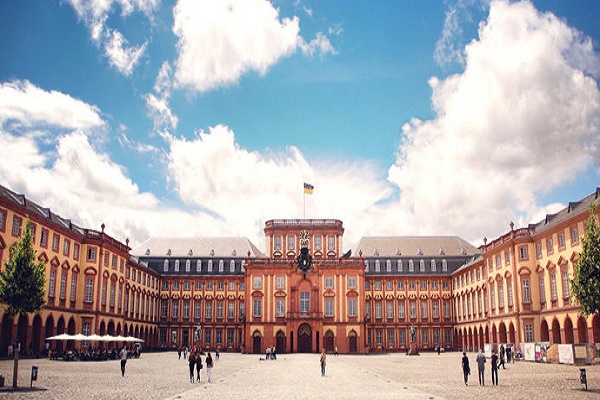University of Mannheim: Refugee Russian scientist will conduct research at the University of Mannheim in the future
The German Research Foundation (DFG) has approved the integration of a refugee Russian researcher into the research group “Reconfiguration and Internalization of Social Structure” (RISS) for three years. For security reasons, she wishes to remain anonymous. The Mannheim political scientist Prof. Dr. Richard Traunmüller involved.
She was shocked when Russian troops invaded Ukraine on February 24, 2022. As a Russian political scientist, she had previously viewed the political regime in her country critically. Despite everything, the invasion of Ukraine came as a surprise to them. It was immediately clear to her that she could not stand idly by: “I have never been a public figure and I have never made any political statements. But I’m a university professor. I could not help but express my stance on what was happening to the students, some of whom were also supporters of the official view.” She signed several letters of protest. Since she is familiar with the logic of the development of political regimes, she then decided to leave the country with her husband. She didn’t want to live in constant fear and lie. Since her escape, her worst fears have been confirmed and even exceeded: “Serious academic research in my field and the teaching that I have been doing for more than 30 years and that I love very much have become impossible.” In Mannheim, she can do her research as a member of the “RISS” research group.
When she and her husband decided to come to Germany, they received help from friends who also put them in touch with scientists in their field at the University of Mannheim. Their integration into the research project took place on the initiative of Prof. Dr. Annette Kehnel, Vice-Rector for Studies and Teaching at the University of Mannheim, and Prof. Henning Hillmann, Ph.D., Vice-Rector for Research and Young Academics at the University of Mannheim. “Both of them contacted me and asked if I could help the Russian scientist because of the professional proximity. I knew right away that I was going to do this. It seemed to me to be an obvious matter of course,” reports Prof. Dr. Richard Traunmuller, Co-spokesman of the research group and holder of the Chair for Political Science and Empirical Democracy Research at the University of Mannheim. He then submitted an additional application to the DFG, which has now been approved. Traunmüller sees the researcher’s expertise in the comparative research of political organizations and how they adapt to social and technological change as a valuable enrichment for the group. “We originally planned such a project in the RISS application. However, this was rejected by the experts, leaving a gap. Now we can close this technical gap in a very targeted and optimal manner. Personally, she also brings an important international, especially Eastern European perspective to the project,” explains Traunmüller.
The RISS research project deals with the potential effects of social change: Does the socio-structural mix of people lead to more integration and unity or does identification with society dwindle? To research the various hypotheses, the scientists combine social structure analysis and political sociology. The project started in autumn 2021 and will initially be funded by the DFG for four years. Researchers from sociology and political science are involved, who deal with a wide variety of social areas, such as gender equality, migration and party politics. The Mannheim part of the research group is located at the Mannheim Center for European Social Research (MZES). The Russian political scientist will primarily contribute her knowledge of political parties in post-Soviet countries, which she acquired at her previous university and within the framework of a number of international projects. In addition, she will place a special focus on the peculiarities of modern communication. These form the context for the changes in the political landscape caused by social change.
The scientist is happy to be able to conduct her research unhindered in Mannheim and is excited about her new task: “The opportunity to work on a project like this is very inspiring. I am very grateful to the University of Mannheim, Professor Traunmüller and his colleagues for accepting me into their team, where I can continue to do research in my field.”

